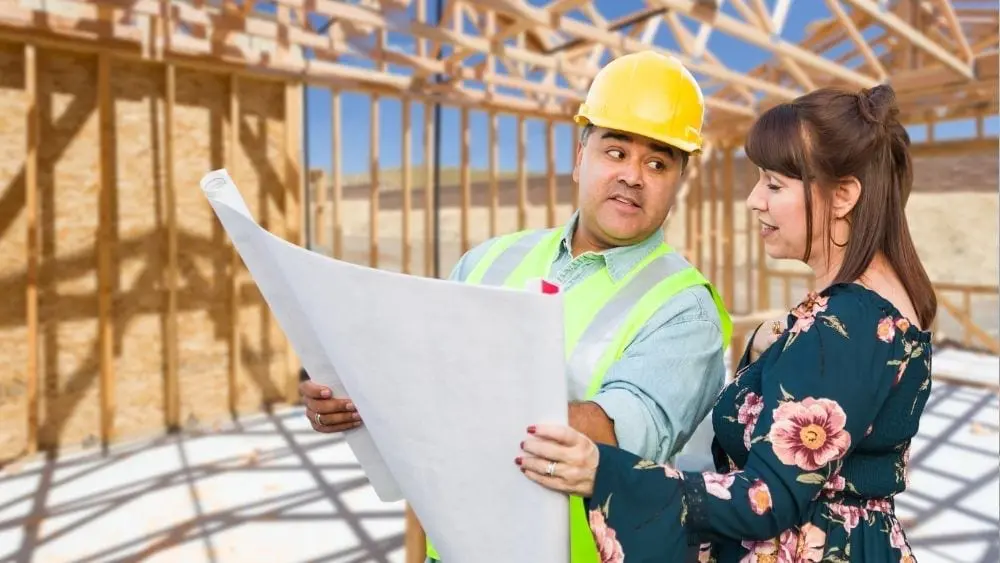
“Do what you do so well that (customers) will want to see it again and bring their friends.”
When Walt Disney said that, he was, of course, talking about a certain rather successful theme park.
But the notion of the delighted customer being a great recruiter of more customers hasn’t been lost on many of the nation’s homebuilders, who spend considerable time and money gently picking the brains of recent buyers to learn what made them happy (and, just as important, unhappy) in the course of getting their house built.
Toward that end, builders of all sizes are signing up with companies that specialize in surveying their customers’ reactions to every aspect of the process, from walking through the model homes to getting a mortgage to what the house feels like to live in after the dust has settled. They may even want to know whether your dinner plates fit comfortably within your kitchen cabinets, but more on that later.
As many as a dozen companies measure consumer satisfaction for homebuilders, according to Bob Mirman, chief executive of Eliant, a consumer research company in Dana Point, Calif., that he says has worked with more than 700 builders, including many of the nation’s largest.
Could the things that they find out from others help you, the potential customer, to make a more informed decision about choosing a homebuilder? Perhaps. Generally speaking, though, probably not.
Mirman explains that although some builders do trumpet their customer-satisfaction survey results via advertising, social media, etc., most of them don’t — not because they’re hiding the information, but because they generally utilize the results in-house in order to improve company performance.
“We read every single survey and they’re read by the appropriate departments,” says Karen McCaffrey, vice president of McCaffrey Homes in Fresno, Calif. “We look for the feedback, as it helps to make us better.”
McCaffrey, whose firm currently builds 120 to 200 homes a year, says that she wasn’t aware of any of her consumers having inquired about seeing the research, but wouldn’t hesitate to tell buyers that the company regularly engages in measuring homeowner satisfaction.
Like most homebuilders, she readily agrees that happy customers don’t hesitate to tell friends and family about their experience and such word of mouth is valued marketing.
“We tend to find that it’s a validation that the (building) experience has been worthwhile, that the team is performing together well, providing prompt responses and anticipating their needs,” she says. “(It tells us) that the quality of the home is meeting or exceeding their expectations.”
Sometimes the feedback can lead to unexpected results. “We recognized after reading the surveys that the kitchen cabinets weren’t sized to accommodate today’s dishes, as they’re larger than in previous years,” McCaffrey says. “So we adjusted the size of a bank of drawers to accommodate today’s larger dinnerware.”

The customer-satisfaction surveys work in a number of ways — some of them are conducted by phone, some in writing, but most often online or by email. Homebuyers who agree to participate may expect to be asked their opinions at several points during the building process, McCaffrey says.
Her company is a client of Eliant, which sends out three sets of questions to buyers. “The first is the move-in survey, approximately 30 days after they’ve moved into the home,” she says. The second is at five months and the third is at 11 months.
Generally, the first survey covers the purchase experience. In the second, the homeowner is starting to get a feel for how the home is “living,” she says. In the third, the company gets a somewhat seasoned view of both the house and the community.
The survey responses measure key areas of overall satisfaction — the sales experience, design, the lender, escrow construction, the move-in orientation session, workmanship, etc., she says. The survey company assigns scores in five overall categories and reports the results to the builder.

Carol Smith, a homebuilding industry consultant who specializes in customer satisfaction, says the survey timetable can vary; in her experience, she says, the builder checks in sometime before the home is delivered, then 30 days after move-in and a third time at year-end.
Smith, who has worked in various areas of the homebuilding business since 1975, agrees that some builders are quite upfront about their survey results and others might offer them upon request.
“Homebuyers should look at them as a tool — just one tool in making a decision,” she says.
That’s because not all builders conduct the surveys and not all surveys are created equal, she says. For one thing, Smith adds, participating in such surveys is obviously a voluntary thing.
“Sometimes the people who participate are the people who are angry or disappointed — the happy people may not bother unless they were totally blown away by how great you were,” she says. “The consumer needs to keep in mind that most people will respond to a survey when something went wrong.”
And they do require a bit of a time commitment from the homebuyer, Mirman says. That’s one reason his company shifted away from telephone surveys.
“I don’t know if you’ve ever been bothered by a phone surveyor, but the first thing you want to do is get off the phone as soon as possible,” he says.
“When a phone surveyor asks what things disappointed you or were you happy, these (customers) quickly figure that if they answer in the negative, they’re going to be on the phone for a long time,” Mirman says. “They start to shade their answers in the positive,” in order to be done with it.
And although most of the biggest companies routinely measure customer satisfaction, there are literally thousands of homebuilders and many don’t have the budget for it, Mirman says.
“For the consumer, there really isn’t a lot they can do if they’re working with a builder who builds 10 to 20 homes a year,” he says. He also said that because the percentage of responses from customers of these can be small, any results might not provide a representative sample that they can depend on.
Still it’s something that consumers should at least bring up with builders.
“Absolutely, every time,” he says. “I wouldn’t buy a house without it. Most of the good-sized builders are doing something to measure it.
“We suggest to our builders that they offer to share their ratings with prospective buyers who inquire — even when they don’t inquire,” he adds. “They should be saying, ‘We want you to know that we take your satisfaction very seriously — we want you to be delighted.’ ”
 5 Must-Visit Home Design Stores in Houston
5 Must-Visit Home Design Stores in Houston